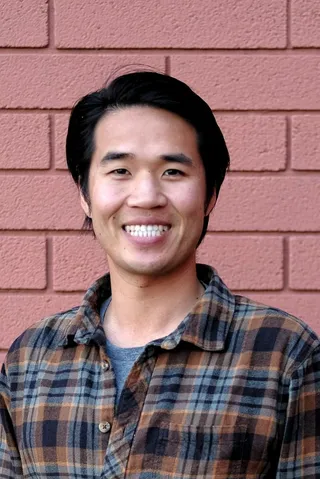It's impossible to fake it

Happy November.
I had a conversation with someone about their DMT experiences. They, being an experienced meditator, said that their 10 minutes of DMT felt like hours of deep meditation, but then qualified on that statement (as if I was about to make this error) that it’s not the same. “Obviously, you can’t just do DMT a few times and get all the wisdom of hours of meditation. You have to actually live through it.”
A few days later, my friend sent me this tweet of podcast clip wherein this bro says that he lives three days in the span of 24 hours, because of adderall’s boost on his productivity. I'm pretty sure it was sent to me in jest, but living among typical Silicon Valley intellectual-optimizer types for almost four years now, I’m not sure what is farce and what is unwitting self-caricature.
This then brought back memories of when my other friend told me that they watch movies at 1.25x or 1.5x speed to save themselves time. And another friend who rebutted, facetiously, that he doesn’t understand “why people have sex when they can just masturbate and get it over with in minutes.”
Do these make you squirm, a little bit? It all goes to say, you can’t cheat time. You can’t cheat experience. You can’t cheat the embodied wisdom of living your life directly.
And yet. Living in SF, I see us trying to cheat (we call them "hacks") so, so often, manifesting in many ways, including:
- The idea that you can achieve work life balance by simply accounting for x many hours of work, and y many hours of personal time.
- The idea that you can read book summaries and understand the book as if you had read the whole thing (cough, Blinkist)
- The idea that you can be a great leader and manager by reading and acting out all the management and leadership advice (with Anki spaced repetition flashcards to periodically remind you)
- The idea that you can be a good friend by simply having performed all the good-friend things, like automating happy birthday texts, sending gifts for holidays, and keeping Notion notes on important details
I hope you can see the through line of all the examples above. I have no other word for it than a lack of embodiment. It is a lack of authenticity, but not inauthentic others as much as to themselves. It is performing to the script, as opposed to the method actor trying to understand the lived experience of their character.
It's seductive to think that we can have an edge over others by taking advantage of these so-called hacks.
But there is a saying in Eastern philosophy that describes this. Bruce Lee quoted it in Enter the Dragon in this excellent scene, but I'll quote Thich Nhat Hanh here instead:
"...the teaching is merely a vehicle to describe the truth. Don’t mistake it for the truth itself. A finger pointing at the moon is notthe moon. The finger is needed to know where to look for the moon, but if you mistake the finger for the moon itself, you will never know the real moon." - Thich Nhat Hanh, Old Path White Clouds: Walking in the Footsteps of the Buddha
The zeitgeist in modern day San Francisco breeds the kind of mentality that falls into the trap of thinking cheating is possible. STEM majors with their so-called rationality and objectivism (if these are possible) are prized here. What can be measured is more worthy than what cannot. Which also means that knowledge and how many facts you know is more prized than wisdom and what you can compassionately understand about another's lived experience. It's seductive for the achievement-oriented types who need to be able to measure their own progress to assure themselves that they are worthy.
I'm writing all this because I've fallen deep in this trap myself, and I've slowly digging myself out of it over the past 12 months, and I can only write about it now because I made a conscious decision to let all of that go. The achievement, the productive output, etc. And I can now feel the difference of being able to directly engage with the lived experience of life, to lift the veil of performativity that had been silently choking me for years.
First instance: I started doing stand-up comedy a few months ago. I did a two sets, both in a private setting. There was a huge difference between my very first set and my second set (which I thought was much better). In the first set, I was simply telling jokes, as if they were points I needed to hit. I watched a recording. It was really bad. Two months later, I performed a second set, which was much better. I wasn't telling jokes; I was embodying the jokes. By doing that, I felt like I had a better stage presence, and could naturally connect with the audience more. I didn’t have to remember the “rules” of charisma, it came naturally with the embodiment of what I was doing. I felt like was a stand-up comedian, not just playing at one.
Second instance: I had been using Duolingo to learn Spanish for almost four years and my progress had been stagnant. I noticed I was merely focusing on the rules and the vocabulary, the corpus of the language, rather than using the language as a tool of expression. For many years, learning Spanish felt like another to-do item, that if I just commit x many minutes per day, I can reach proficiency. It wasn’t until this year that I was finally able to break a barrier. It’s hard to explain what that barrier is, unless you’ve performed in theatre and know the difference between reading your lines, and embodying it as a method actor would. It's not acting, it's embodying.
I’ll tell one more story, this time, about a friend of mine. He and his girlfriend at the time were having trouble connecting at a more intimate level (not a euphemism for sex). Being a task-oriented person, he immediately came to the solution that he needed to schedule her in his calendar, and put reminders to appreciate her more, etc. She was livid. “You aren’t getting it. I don’t want to be another item on your to-do list.” She's asking for the whole embodiment of what a partner is to the person he loves. Not for him to behave and perform like the boyfriend he thinks she wants. It's why sometimes you will hear of relationships ending because one person says "they're doing everything right, but there's just something is missing..." Maybe it's the embodiment.
We just can't Google "how to be a good friend/boyfriend/manager" and do those things. We need to fully embody the love we feel for our friend/partner/co-worker, and thereby manifest the being that is uniquely us, which is more valuable than anything else that has been studied or written about in a book. And what we notice is a newfound ability to remember our friend's birthday, not because our memory is better, but because we actually give a shit.
There is an intersection between the lack of embodiment, and the pressures of a capitalist frame that sees us as human capital, demanding us to produce more. I'll leave it at that, because it's long enough for another blog post. But I'll leave you with a quote from a book whose thesis is exactly this:
“It means embracing and trying to inhabit somewhat fuzzier and blobbier ideas: maintenance as a form of productivity, of the importance of nonverbal communication, and of the mere experience of life as the highest goal." – Jenny Odell, How to do Nothing
Aaaand one more video clip that succinctly encompasses the past 1200 words, in just five minutes, from my top 5 favorite movies of all time:
@westleydang Newsletter
Join the newsletter to receive the latest updates in your inbox.
